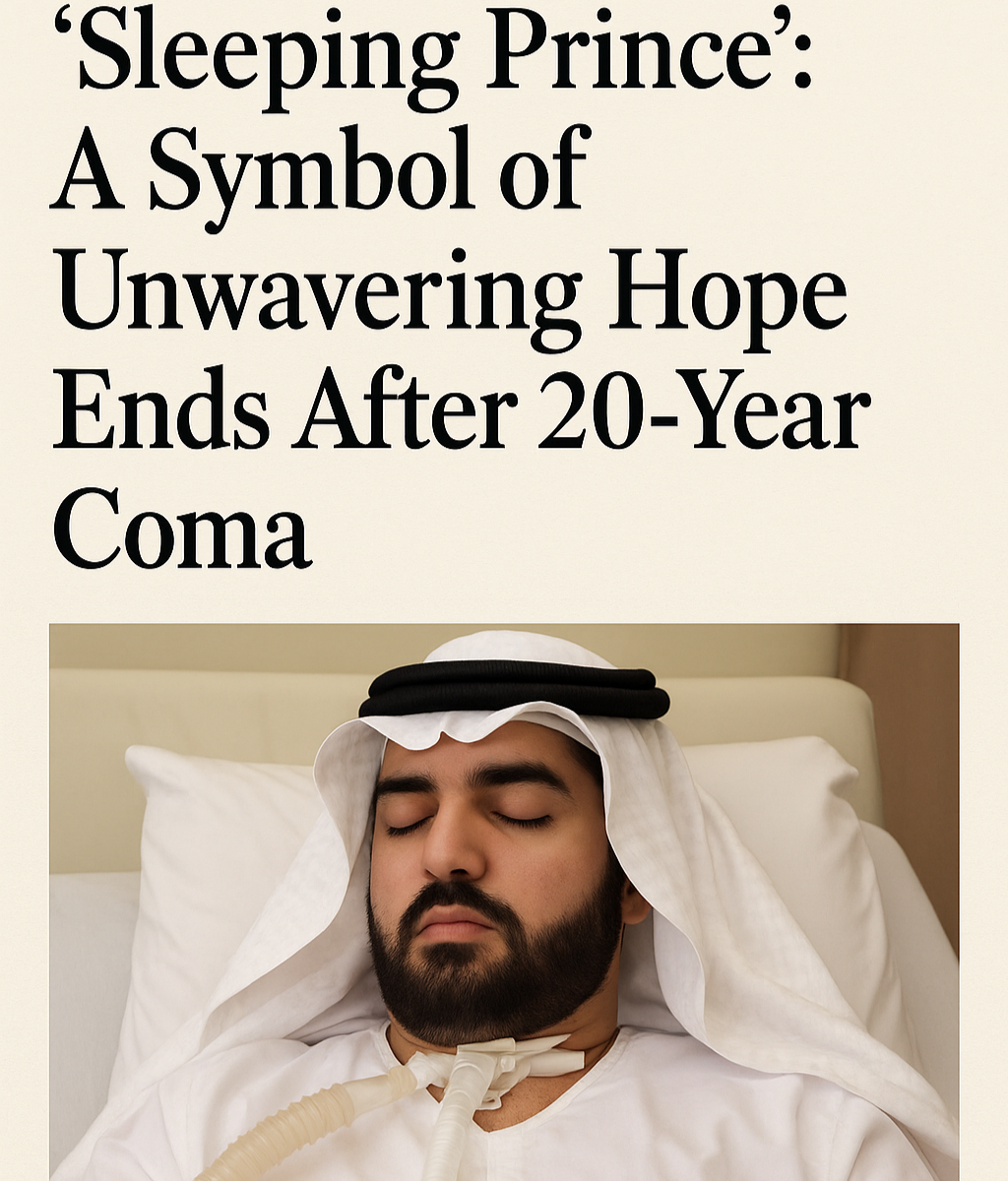
On July 20, 2025, Saudi Arabia bid farewell to Prince Al Waleed bin Khaled bin Talal, known worldwide as the “Sleeping Prince.” His passing at age 36, following a 20‑year coma triggered by a life‑changing car accident, concludes one of the longest-lasting comatose states in modern medical history .
A Life Paused in TimeIn 2005, the prince suffered critical injuries in a car crash. What followed was a two-decade journey—marked by ceaseless hope from his family, especially his father, who funded premium medical care and embraced every sliver of recovery news. The prince’s persistent presence in a vegetative state captured global attention, earning him the endearing title, “Sleeping Prince”—a living testament to endurance and faith .
The Family’s Unwavering Vigil
Throughout the years, updates from the royal household stirred waves of empathy across social media. Supporters around the world offered prayers, lighted candles, and followed every medical bulletin. This outpouring highlighted how the prince’s plight transcended borders, uniting people in collective compassion for unseen suffering and hope.
Global Response and Reflection
The news of his death spread quickly. Indian news outlets like NDTV described the event as a “heartbreaking chapter”—echoing the shared sorrow of followers who had followed the prince’s journey since childhood . Observers from Middle Eastern and global medical communities reflected on the ethical dimensions of prolonged life-support—how long hope sustains the body, and what it means when hope wanes.
Ethical and Medical Debate
Prince Al Waleed’s prolonged coma invites a critical look into medical ethics. How long should life support continue when recovery appears unlikely? Medical experts often point to such cases as unique chances for research—offering insights into brain inactivity and patient care standards. Still, they underscore that each case, especially one of such duration, is shaped by deeply personal and cultural values.
A Final Goodbye
As funeral arrangements are underway, Saudis and the global public grapple with a mixture of relief and sorrow . For many, it’s the close of a two‑decade vigil; for others, it’s a reminder of life’s fragility and the power of enduring love. Online, tributes continue to flow—shared memories, prayers, and reflections that mark the end of an extraordinary journey.
Two decades in a vegetative state is exceedingly uncommon, making the prince’s life—and death—a subject of international medical interest. His story bridged continents, reminding us that in moments of profound suffering, empathy knows no borders. Cases like his spark important debates about life-support limits, patient rights, and the role of family and faith in medical decisions.

Your comment will appear immediately after submission.